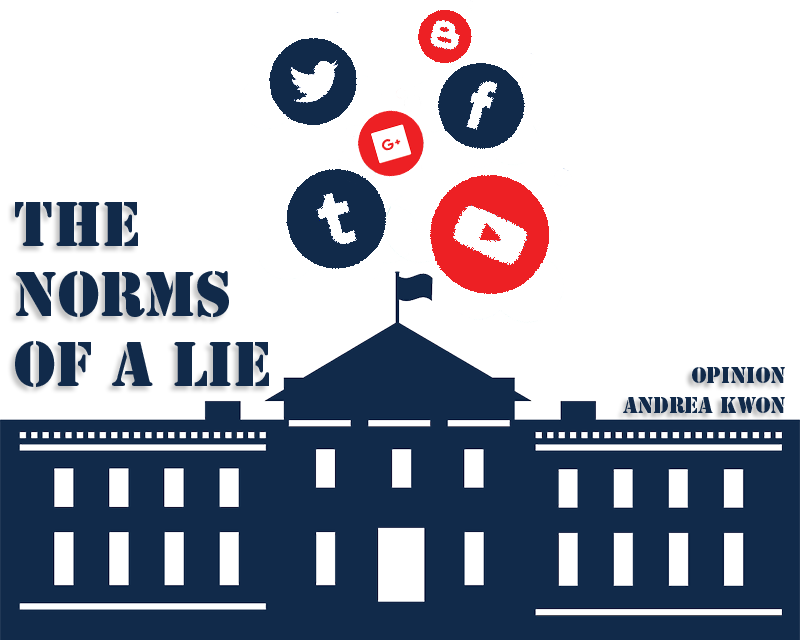There is no doubt that every one of us lie at least once everyday, whether it is a white lie for the good of the other person or a flat out lie for a selfish reason. However, amongst the lies in society, there are times falsehoods should not be told at any cost, especially if they regard a country and its government. Nevertheless, falsehoods are still made about the government and from the government, and seem to be more prevalent and apparent than ever in our daily lives, distributed from the mouth of the President of US himself to the media that surrounds us everyday. It has become so normal that our mouths look at the Facebook feeds on President Trump and naturally say, “This article is probably bogus.” But are these behaviors that we now call normal not supposed to be normal?
Well, let us start with President Trump. From the Oval Office, the President of US has uttered a surprising number of hyperboles, his favorite type of phrases. According to the Independent, from his first day in office, Trump has claimed that the inauguration crowd size was massive, which was proven to be false by an aerial image of the inauguration. The problem here is not that Trump likes to exaggerate his glory but the fact that this is a continuous habit of his that dates way before his entrance into the political world, and this increases the likelihood that we, the public, will not be able to get hard, straight facts from the president.
His surroundings are not much better. From the first day of the Trump administration, his administration has already uttered different false claims in a number of instances. According to NY Times, former-president Obama and President Trump were briefed on unsupported reports that Russia gained private information regarding the current president. Thankfully, the issue did not extend towards more intensified tensions between Russia, but it brings up the question: if the President himself tells tales of falsehood along with his surrounding administrators and workers, whom do we turn to?
The obvious answer seems to be the press.
As a source of information regarding our daily lives, the press is a sure place to get the hard facts. However, despite its constant tales of truth, it seems as though the prevalence of technologies in our lives brought us to a situation in which we turn to the media rather than the press unconsciously, without the knowledge that the media may not provide the hard facts that we require. Media has become so common to the extent that it seems as “credible” as the press. A perfect example of this is the recent issue regarding Buzzfeed’s reveal of an unconfirmed dossier on President Trump and Russia. As a source of media and not necessarily the press, Buzzfeed’s sources should have not been considered as trustworthy in equal worth as the press, yet the dossiers were considered with equal gravity despite being unconfirmed.
The time has come where we have an enormous amount of information continuously flowing in and out with a number of scandals in the government. We cannot change how prevalent the information is, but we can limit the information that we gain. Differentiation between the media and the press should be made along with the amount of belief and trust we put into them. The media in turn, along with the press, should work to constantly fact-check the information given. Perhaps then, we would have a stronger system of trust amongst us.

